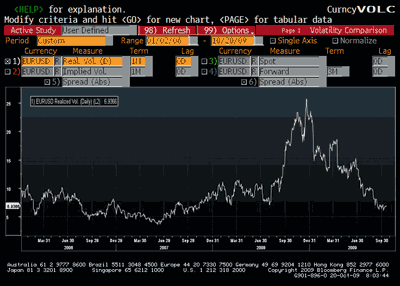Here are five great myths and/or lies of the modern financial system:
1) “The check is in the mail”
2) “I’ll call you right back”
3) “We are long-term investors”
4) There is a secret cabal of gnome-like creatures that manipulate the gold price (up or down, depending on your druthers)
5) “The United States believes in a strong dollar”
When the strong dollar policy was formulated by Bob Rubin in 1995, it was sincere and served a purpose. After all, the Treasury market had experienced a horrible sell-off the previous year and the buck made all-time lows against the JPY and DEM in 1Q95, prompting the last bit of multilateral currency intervention in which the US was an enthusiastic participant.
And one could argue that the policy served a useful purpose throughout the 90’s; by maintaining tight monetary conditions, it replaced some element of Fed rate tightening, while at the same time affording the US a useful (positive) terms of trade shock. It was only a decade ago that oil flirted with $10/bbl!
However, in the Noughties, a decade dominated by global imbalances, the bond conundrum, and a host of other resource misallocations, it’s been quite clear for some time that the strong dollar policy is a farce worthy of Rabelais. It’s a well-known fact that the strong dollar policy is a hollow one, and Macro Man can only conclude that in diplomatic circles, it must represent the epitome of poor taste for JCT, among others, to reiterate their support for what has become a “strong dollar” policy (emphasis on the quotes.)
‘Tis a pity, really; the strong dollar policy once served a useful purpose, and it’s not difficult to envisage it doing so again. By failing to withdraw its support of an overtly strong dollar when one was no longer desirable (quite the contrary), the US Treasury has done America and the rest of the world a disservice.
Of course, it’s a tad rich for JCT to dance around someone else’s linguistic parlour tricks; after all, he is the undisputed master of speaking in a literary code of his own devising (remember ‘strong vigilance’?!?!). And even in the currency realm, the Europeans have their own form of linguistic semaphore; when Europe warns of “excessive volatility” in currency rates, they are really moaning about the level of the euro.
For if it really were volatility that Europe cared about, then they should be chuffed to bits. As the chart below demonstrates, one month realized vol in EUR/USD has collapsed in recent months and is now, at 6.9%, at the low end of the post-Bretton Woods range.
(click to enlarge)
Belatedly, of course, the Europeans seem to have noticed that the Chinese aren’t exactly playing “good neighbors” when it comes to global currency policy. And so after years of American financial diplomats trudging to Beijing to wag their fingers at the unrecalcitrant Chinese, Messrs. Trichet and Juncker will be making a similar pilgrimmage over the next couple of months.
For some reason, Macro Man can’t shake the Kim Jong-Il/ Hans Blix scene from Team America from his mind, though he suspects that feeding the European worthies to a shark tank would probably not escape notice.
The best that the Europeans can probably hope for, however, is if the Chinese response is something like this:
[video1]_O-QqC9yM28[/video1]
Meanwhile, Brazil has re-instituted a punitive tax on foreign capital, a week after Turkey was rumored to be contemplating a similar arrangement. Taxes on capital, moaning on currencies, nothing on interest rates. You can almost literally see the wagons circling as each country looks out for #1.
It’s entirely possible for this liquidity/positioning/DGDF rally in risky assets to continue through year end; in many ways, it’s in everyone’s best interest for this to happen. But Macro Man can’t shake the feeling that we’re all repeating the mistakes of the last cycle (in fast forward, no less!) and that when the reckoning comes, it won’t be much fun.
- Bulenox: Get 45% to 91% OFF ... Use Discount Code: UNO
- Risk Our Money Not Yours | Get 50% to 90% OFF ... Use Discount Code: MMBVBKSM
Disclaimer: This page contains affiliate links. If you choose to make a purchase after clicking a link, we may receive a commission at no additional cost to you. Thank you for your support!




Leave a Reply